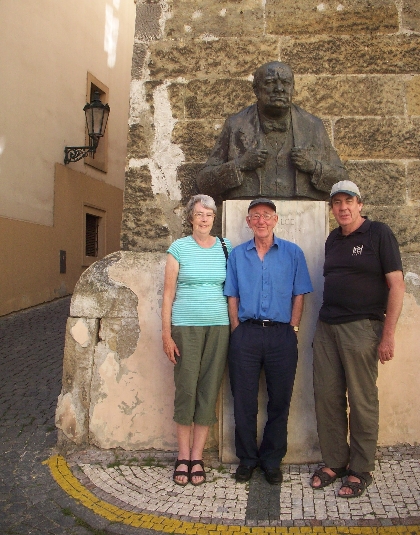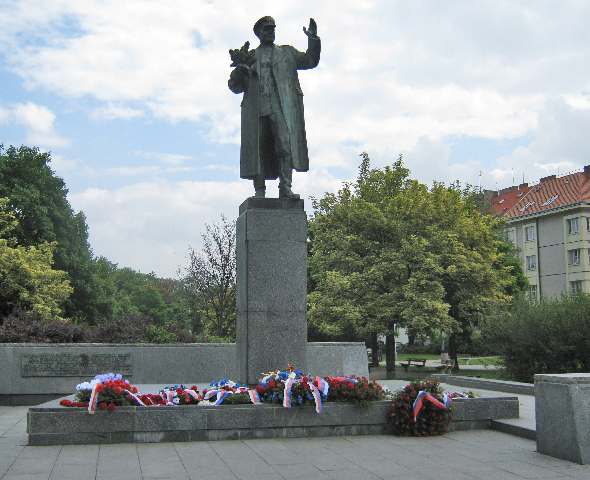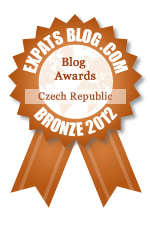
Our Christmas Party invitation
On the evening of Wednesday 10th December, Sybille and I attended the British Ambassador’s Christmas Party held at the Embassy in Mala Strana, one the nice little perks of being the Anglican Chaplain in Prague. Just as we were leaving the main reception room to go downstairs to collect our coats and head home, Sybille stopped to say ‘Hello’ and stroke Maya, one of the Ambassador’s two adopted Czech cats. Maya was occupying a vintage chair by the door, which had a rope stretched across between the two arms, to prevent humans sitting in it. But clearly such regulations do not apply to cats!
Standing nearby were two couples, with one of the couples speaking to each other in German. The German-speaking lady turned to watch Sybille speaking with the cat so I asked her whether she was German, (rather than Austrian or Swiss), and what was she doing in Prague? “My husband is the German Ambassador”, she said. Therefore as Sybille got up from speaking with Maya the cat, I said, “Sybille – meet your Ambassador!” Thus we met the newly arrived German Ambassador to the Czech Republic, Dr. Arndt Freiherr Freytag von Loringhoven, and his wife, Barbara.
This encounter, and the conversation that followed, touched on several issues I’ve written about previously in this blog. It also offered a most interesting insight as to how two Germans, and almost certainly how the government they represent, think about these issues.
Having discovered that Barbara was the wife of the German Ambassador, I duly explained who I was, not least because I was wearing my clerical shirt and collar. Most interestingly, she immediately said that, as a Roman Catholic, she was appalled by the treatment of Jan Hus at the Council of Konstanz . I was pleased that for someone who had only been in the Czech Republic for just under three months, she was very aware that next year would mark the 600th anniversary of the martyrdom of Jan Hus and that major events were planned to mark the anniversary.
Having collected our coats, the four of us walked down through the narrow streets, from the British Embassy, to Malostranské námestí. Here we said, “Auf wiedersehn”, as Sybille and I stepped aboard Tram 12 and the ambassadorial couple continued their walk to the German Embassy and residence, a few streets away.
Earlier this year, I wrote a post entitled ‘Is Prague safe?’. In recent months, that post has become a frequent landing page for new arrivals to my blog, no doubt because it appears on the first page of Google for any enquiry about safety in Prague. If anyone wants further evidence as to how safe Prague is, please note that here was the Ambassador and his wife of a major European country, walking without any associated security entourage, through the streets of Prague, relatively late at night.

The bust of Sir Winston Churchill, along with my sister, brother-in-law & me © June Taylor
At bottom of the short driveway from the gates of the British Embassy to Thunovská, there is this bust of Sir Winston Churchill. My apologies to my sister June and brother-in-law Garry, that this is the only photo I have of the bust, taken with June’s camera by Sybille, during June and Garry’s visit to Prague in August 2012. Upon seeing the bust, probably for the first time ever that evening, Barbara the Ambassador’s wife said to me, “Why would they, (meaning the Czech people), celebrate Churchill. Surely he was responsible at the Yalta Conference in 1945, which divided Europe between East and West”.
After taking a deep breath, I replied by saying, “Because he led the United Kingdom during World War Two and defeated Hitler and his Nazi regime”. I, together with most Czechs, can clearly distinguish between the Third Reich and the current Bundesrepublik Deutschland – a distinction I’m sure the current German Ambassador would also want to make. Please forgive the aside, but I do wish that the British tabloid press could also make that same distinction, whenever England are playing football against Germany 🙁
I could have made the point that the bust was actually erected by the British, though I suspect it needed Czech approval. But the Czechs do admire and respect Churchill. There is a statue of him in námestí Winstona Churchilla (the joys of Czech grammar 🙂 ), in the suburb of Žižkov, on the other side of the Vltava.

Statue of Soviet Marshall Ivan Konev with floral tributes © Ricky Yates
But Barbara’s question, does raise the ongoing issue of what achievements of a certain person do you recognise and celebrate, and what other less attractive aspects do you therefore ignore. I have previously written about how the statue of Marshall Ivan Stepanovich Konev of the Soviet Red Army, still remains standing in Námestí Interbrigády, a large square on one side of Jugoslávských partyzánu, the main thoroughfare leading from our nearest Metro station at Dejvická, to Podbaba where we live. It is because he led the troops that liberated Prague from Nazi occupation, finally entering the city early on 9th May 1945, just a few hours after the unconditional surrender of all Nazi troops across Europe, had come into force. One could however, also point out that he also led the Soviet troops who crushed the Hungarian uprising in 1956!
Not everybody agrees with these distinctions, especially with the current actions of the Putin led government of Russia, who most Czechs regard as little different to the communist led Soviet Union which was responsible for the crushing of the 1968 Prague Spring. On the morning of 17th November, ‘Struggle for Freedom and Democracy Day’, which this year marked the 25th anniversary of the beginning of the Velvet Revolution that toppled the Soviet supported communist regime in Czechoslovakia, someone sprayed the statue of Marshall Konev with pink paint 😉 Unfortunately, before I could get a photo, the local authority got the paint removed.
This then brings me to the final point about our most enjoyable encounter and conversation that night. The next day, Sybille and I duly researched a little more about the new German Ambassador. He comes from German nobility – the name being a giveaway 🙂 He has also done two stints in Moscow which both he and his wife told us in conversation. But most interestingly, Sybille discovered through reading the German Wikipedia article about him, that between 2007-2010, he was Vice President of the Bundesnachrichtendienst, the German Federal Intelligence Service.
Both of us feel that with all this experience, the appointment of Dr. Arndt Freiherr Freytag von Loringhoven as German Ambassador to the Czech Republic, reflects the concern of the current German government about the intentions of Putin led Russia, towards the former Warsaw pact states of Central and Eastern Europe. I outlined these concerns in my post entitled, ‘The Ukraine crisis as seen from the Czech Republic’. Sadly, nine months on, those concerns remain and have become ever stronger.



I am stunned that anyone could diss Churchill, my hero and the coolest dude who ever lived in the history of the Western Civilization. It’s not like he built the Iron Curtain, he just named it. The Germans and the Russians chose to erect it, not the West.
Here’s my post on “Discovering a Prejudice Against Germans I Didn’t Know I Had” from when I lived in Prague. http://empty-nest-expat.blogspot.com.tr/2010/01/discovering-prejudice-against-germans-i.html
Ricky, your readers may also be interested in my post on the Churchill museum, built in Fulton, Missouri, where Churchill gave his “Iron Curtain” speech. http://empty-nest-expat.blogspot.com.tr/2008/10/iron-curtain-has-descended.html
Hi Karen – First of all, I’ve combined your two comments into one, so I can just write one reply.
As you have discovered from several comments on my link to this post on FB, there are aspects of the life of Sir Winston Churchill which are not so honourable. As I wrote ‘what achievements of a certain person do you recognise and celebrate, and what other less attractive aspects do you therefore ignore’. Most British people hold Churchill in high regard because of his leadership during World War Two – hence the bust by the British Embassy. It is that aspect of his career that most Czech people also recognise, hence the statue and the square named after him, in Žižkov.
As you say, it was the speech by Churchill to which your second blog post link refers, that resulted in the widespread adoption of the term ‘Iron Curtain’. But please don’t blame the Germans for its erection! The Iron Curtain arose in the years 1945-48, when Germany was an occupied country. The origins rather lie with the Soviet Union led by Stalin, who wanted to enforce his hegemony over Central and Eastern Europe, exactly as Putin led Russia is once more seeking to do now.
The various issues regarding the life of Churchill are explained in a very balanced way in this BBC News Magazine article http://www.bbc.com/news/magazine-29701767
An interesting and informative post, Ricky. Thank You.
It raises a point I have been curious about. When I have read articles about WW II atrocities having been committed by the “Nazis” I considered it just politically correct politeness towards Germans. But you mention a distinction between the German government then and now. Is it any greater than say the USA under Roosevelt in 1933-1945 and the current administration under Obama? Or to bring party politics into the comparison, between the U.K. with Margaret Thatcher in the lead versus Tony Blair? That is, they were all the duly elected and official country governments of their day. What distinction are you referring to?
I’m glad you enjoyed it, Michael!
Making a clear distinction between Hitler’s Third Reich and the present-day Bundesrepublik Deutschland/German Federal Republic is a lot more than ‘politically correct politeness towards Germans’ as you describe it. To start with, the geographical territory of Nazi Germany was considerably different to that of present-day Germany & the two entities had/have totally different constitutions. You make the comparison with the United States of America, whose borders haven’t changed since 1867 when you purchased Alaska from the Russians, and with a constitution dating from 1788.
The citizens of today’s Germany are extremely concious of what happened during the time of Hitler and are absolutely determined that such things should never happen again. Just ask my German wife as to what was hammered into her as part of her education! This attitude is seen in the marked reluctance by successive post-war German governments, to intervene anywhere outside of their own borders, even allowing for their current economic power. I hope that begins to answer your question, Michael.
Ricky, what exalted circles Sybille and yourself move in; hobnobbing with Embassy pets no less 😉 . Seriously though, thanks for another interesting and thought provoking post. Regards, Sean.
Lol Sean – The current British Ambassador, Jan Thompson, is a single woman in her late forties. So rather than be alone in the extensive ambassador’s residence above the Embassy, on arrival in August 2013, she adopted two cats from a local Czech cat shelter. They have the run of the premises, together with the embassy garden, and have been known to intrude upon important meetings and on occasions, cause a ‘diplomatic incident’ 🙂 .
Glad you enjoyed the post, Sean.
What an interesting and thought-provoking post, Ricky, which incidentally brought back happy memories of wandering around lovely Mala Strana, embassy-spotting. 🙂 I too would distinguish very firmly between the Nazi regime under Hitler and post-war Germany and its governments, as would my German friends.
It was such a fascinating encounter and conversation, Perpetua, touching on several things that I’ve previously written about, that I felt it deserved a blog post. I’m glad you enjoyed it. And yes – walking around Mala Strana is always great fun!
As I’ve written in reply to an earlier comment, to which I assume you’re alluding, there is a major difference in both attitude & outlook, between Hitler’s Nazi regime that came to an end in 1945, and the current Bundesrepublik Deutschland. Successive post-communist Czech governments & the vast majority of Czech people recognise that – would that the British tabloid press would also do so!
Fascinating! I’ve often wondered about the Konev statue as well; thank you for the education on that one. On a completely unrelated note, one thing that seems to be a bit hush-hush in this country is the conditions of the expulsion of Sudeten Germans in 1945. But that’s probably opening a can of worms. Anyhow, what a treat to meet and spend time with such a stately couple!
Glad to have enlightened you regarding the Konev statue, Em 🙂 And it certainly was both an educative and enjoyable time spent in conversation with the new German ambassador and his wife.
The expulsion of the Sudetendeutsche in 1945, is an interesting but somewhat sensitive topic as you suggest. I mentioned it in several blog posts and outlined the background here http://rickyyates.com/sudetenland-and-the-sudetendeutsche/